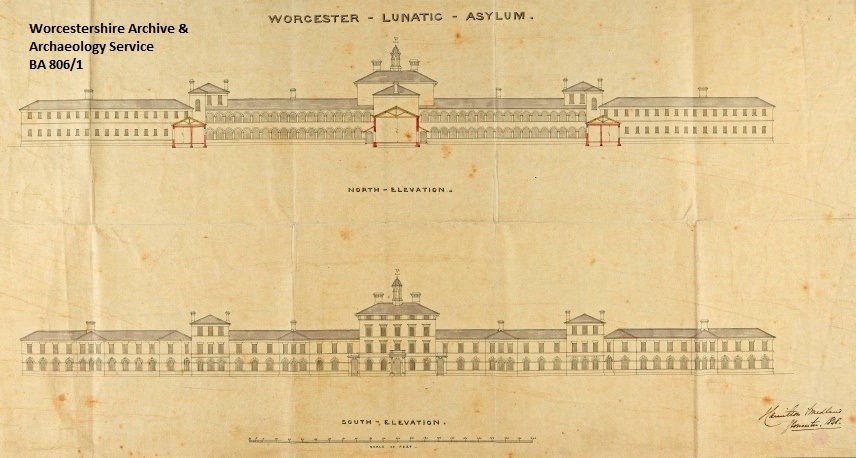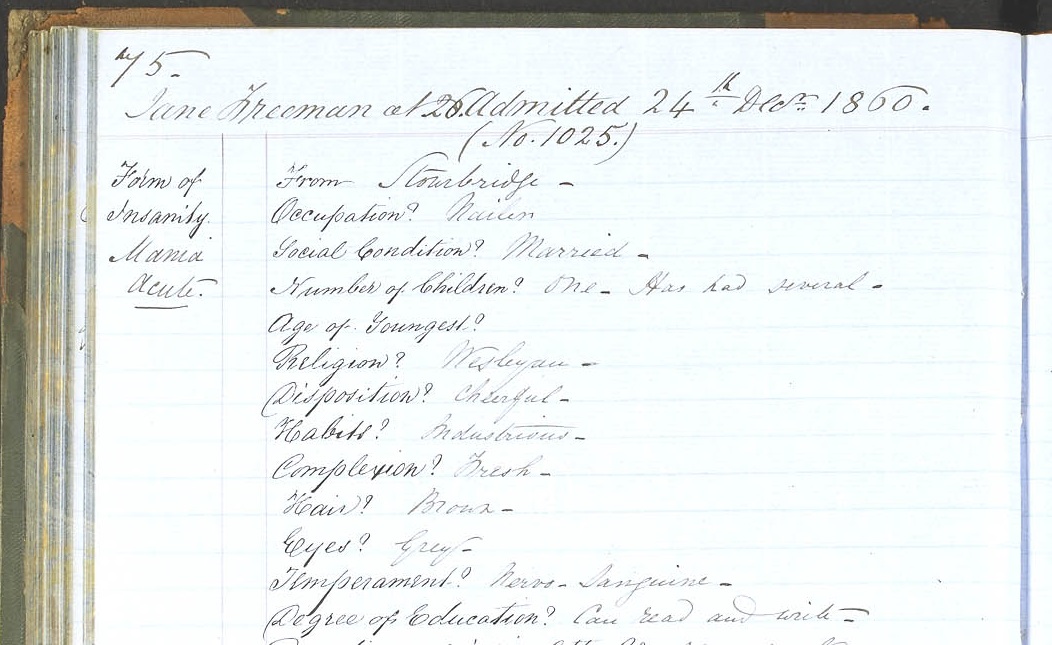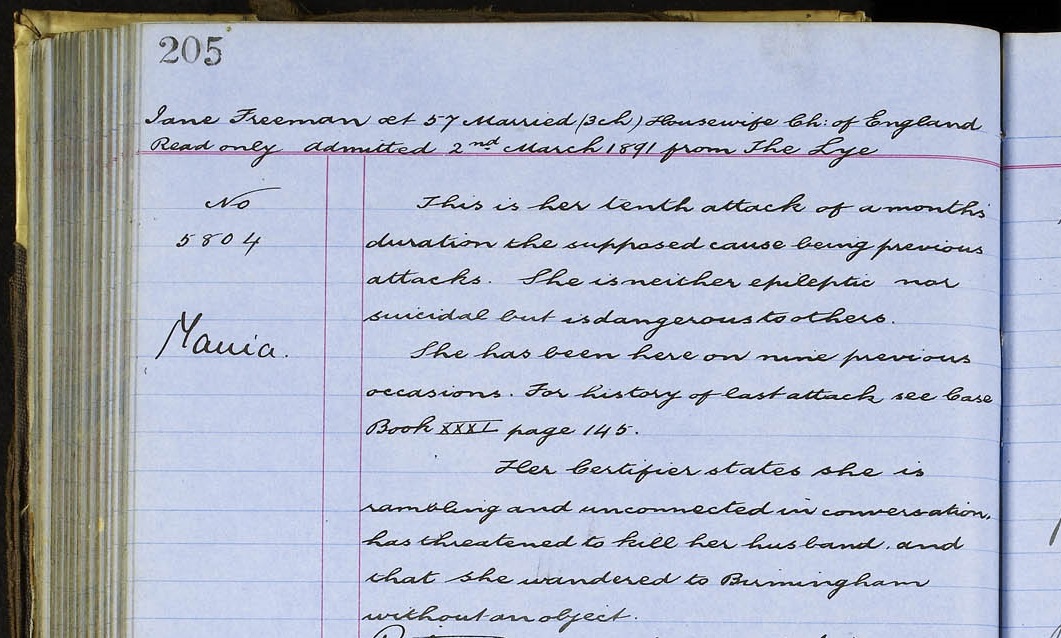Jane Freeman, Nail Maker
- 17th May 2019
| In Mental Health Awareness Week we look back at the life of the Jane Freeman, nail maker, and her extraordinary resilience in the face of poverty and illness. |
| Here at the archives, we are fortunate to hold records from Powick Hospital, formerly known as Worcester County and Lunatic Asylum, which closed its doors 30 years ago.
They shine a light on the lives of some of those living with long term mental illness in the 19th century and are a valuable source of information on the people using the hospital, their conditions and treatment. One such person was nail maker Jane Freeman. Born Jane Pardoe in Lye, Stourbridge in 1834 she married fellow nail maker, Joseph Freeman in 1853 and continued to live in the town. Nail making was a punishing way to make a living, particularly for women. Pregnancy, childbirth, keeping a house and raising children while undertaking exhausting, physical work for very poor pay meant female nailers’ lives could be brutally hard. Add to this the reality of living with a mental health condition and we can start to imagine the challenges she and those around her faced.
We know from case notes that Jane’s first admission to Powick Hospital was on Christmas Eve, 1860 with ‘Acute Mania’; the cause given as nursing a sick child. After a few months she recovered and was discharged, but she was again admitted in 1863 with Puerperal [post-natal] Mania and on at least 9 further occasions over the next 30 years, often with a diagnosis Acute or Recurrent Mania. Childbirth, sickness, poverty and grief were all given as causes. A case book notes, ‘She appears to have worked hard and suffered from poverty…’ During her manic episodes she would walk the streets of Lye at night, noisily and in a state of undress, sometimes knocking on doors looking for a child or making threats. As her mania subsided though she sank into depression and cried for her children. It appears she had been pregnant 13 times and given birth to 10 children, but only 3 had survived to adulthood. Although detailed, her case notes do not mention her care or treatment outside the hospital, so we do not how she, her family, friends and the community as a whole managed her illness. The records do suggest however, that her home remained a loving and supportive place. She often cried to go home and she tried to escape and return home on a number of occasions, succeeding once. Also, although she was often aggressive and violent towards her husband while manic, there was no report or physical evidence of any aggression towards her. An even wider circle of support is suggested in her case notes, as on one occasion friends even made the journey to the hospital to meet her when she was discharged.
In 1891, she was admitted after threatening to kill her husband. The month after her admission, the census shows her husband living in Lye with their daughter Lucy and he gives his marital status as ‘Widow’. His reason for this we will never know, but it could reflect his sense of loss or it could have simply been easier to say that than explain the truth to the census enumerator. In 1897 she returned home, but was re-admitted after only one month suffering from dementia. She stayed at Powick until her transfer to the newly built Barnsley Hall Hospital in Bromsgrove in 1907, where she died in 1909. The end of a life lived with remarkable fortitude.
Today, thankfully, the way we view and treat mental health is changing and we are now becoming more aware of the issues and challenges surrounding it. If you would like information on the advice and support available, they can be found at: Locally http://www.worcestershire.gov.uk/info/20470/mental_health_and_emotional_wellbeing and https://www.hacw.nhs.uk/ourservices/mental-health-services/ or, if you need to speak to someone, please call The Samaritans on 116123 or contact them at: |
https://www.samaritans.org/how-we-can-help/contact-samaritan/



Post a Comment